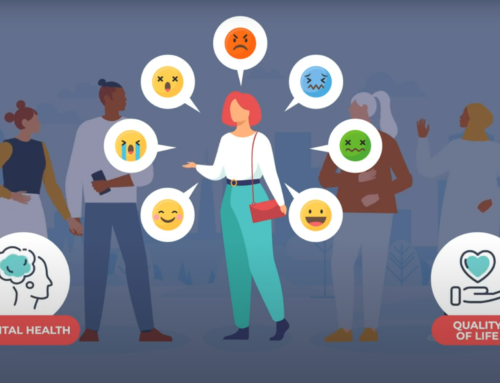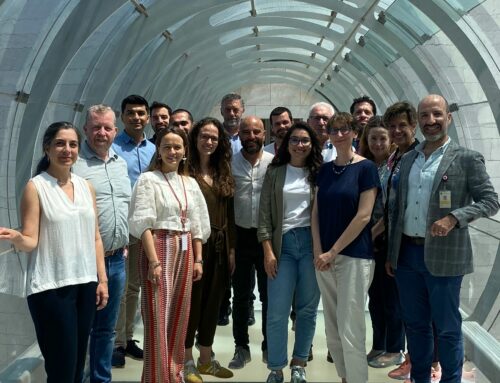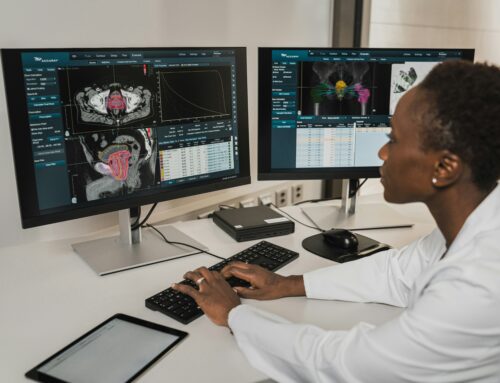In the present days, humanity is facing a new challenge with the COVID-19 pandemic. Since it started, the lives of people were transformed in several dimensions. For example, professional activity is not the same due to confinement and job adjustments. The routines changed dramatically as masks and alcohol gel entered daily life as never before, even for health professionals. Above all, our minds need to adjust to a new reality, one that includes all these changes plus a sense of threat due not only to the contagion but also to the risk of losing our jobs, income, or essential assets. Keeping our mental health intact in pandemic times can be a task of its own.
Also, even if most of the news focuses only on the pandemic, other problems still exist in society. On one hand, there is evidence of a decline in many usual pathologies due to social distancing and the usage of protection masks. On the other, however, noncontagious pathologies still show the same incidence, with the added risk of a late diagnosis. This is the case of cancer-related pathologies among others. Indeed, if people are avoiding the hospitals, the case gets worse for those needing a diagnosis as well as for patients in treatment for serious illnesses.
Mental health and the pandemic
The FAITH project was proposed well before the pandemic arose, and started as early signs were presenting, in January 2020. Then, along with the progression of the pandemic, signs mounted on the worsening of mental health around the world.
In July 2020, the prestigious Lancet Psychiatry journal refers to deterioration of mental health in the UK and highlights how mental health care should change as a consequence of the COVID-19 pandemic. The Journal of the American Psychiatric Nurses Association reports on a risk that the outbreak will create a “second pandemic” of mental health crises. Therefore, it suggests that mental health challenges must be anticipated to provide the most adequate support to the communities.
In time, mental health has become an ever more relevant topic since stress, anxiety, and depression are mounting in society. This is especially true among those who feel more vulnerable, such as cancer patients. Mental health is under pressure from the pandemic crisis. As a consequence, the researchers working at FAITH feel that its purpose has become more important, its results more needed.
The FAITH project: supporting mental health
The FAITH project is working towards creating an innovative solution that uses the latest Artificial Intelligence technologies to support the mental wellbeing of cancer survivors post treatment.
Our solution tracks targeted depression markers in cancer survivors. This enables us to monitor these markers and capture downward trajectories in their mental health. Ultimately, this allows us to inform their point of care of these declines. By doing so, cancer survivors who begin to experience such declines can access the care system as early as possible. Without our solution, instead, they may experience delayed access to appraisal or treatments.
The project Consortium is eager to develop the best possible solution to assess people’s mental health conditions. At the moment, the project is facing some limitations, for example in contacting end users. Nevertheless, the Consortium is pursuing the knowledge, skills, and technological achievements needed to the success of the FAITH project.
We hope we can then expand our solution from cancer patients post treatment to other communities dealing with fragile populations. In time, FAITH could even escalate to larger adoption by the broader community as also exposed to mental health risk.
Our next steps
In the present time, at the beginning of our second year of activity, FAITH is following two main guidance lines. On one side, we are preparing all clinical settings by finalizing the clinical protocol and preparing the clinical trial. On the other side, project partners are focusing on developing the key technological components of FAITH. These will be performing the measurements aiming to become fundamental assets in data collection, analysis and deploying results following the relevant constraints of security and data protection.
The next phase will include integration and testing of devices and applications so that all the technological means are ready for the trials; on a parallel path, doctors and trial managers are preparing the recruitment for the project to become operational in full, performing the action that will lead to all trial execution procedures.
Author: Fernando Ferreira of UNINOVA (Caparica, Portugal).




